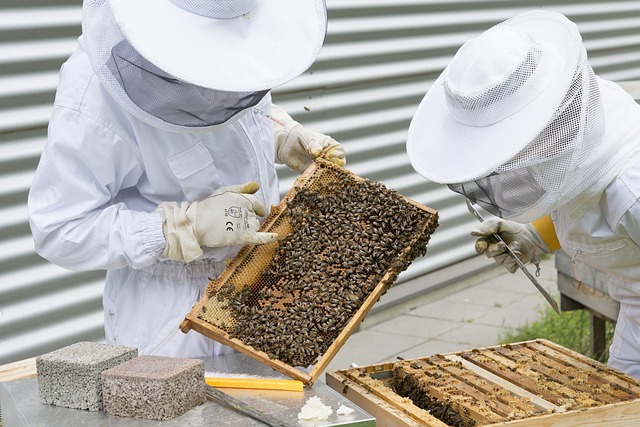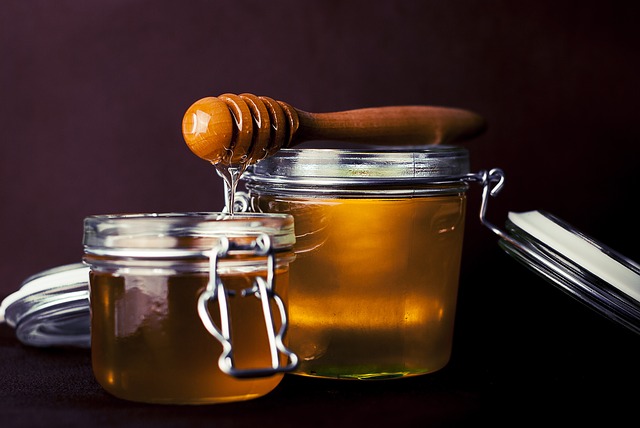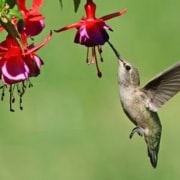HIVE HAPPENINGS IN SEPTEMBER

photo courtesy of pixabay – topp-digital-foto
All About Honeybees
By Engrid Winslow
Have you ever wondered what beekeepers actually do? Did you think that they just put hives in fields and then visit to collect honey every once in a while? Well in Hive Happenings, we are going to take you inside the duties of a beekeeper in the first of a series of articles explaining what the bees are up to and how a beekeeper helps them to survive and thrive.

photo courtesy of pixabay – fancycrave1
Honeybees are the only bees that overwinter as a colony and cold weather can be stressful enough that many colonies will not survive without some help from a beekeeper. Even with that help, a hive that is weak or doesn’t have enough food stored or suffers from a mite infestation will not make it through. Each colony has worked very hard all spring and summer collecting honey and pollen to feed the new brood that the queen spends all day (and night!) laying. They are also storing extra honey and pollen to make it through the winter when there is very little forage (in most parts of the country). Every colony needs 60-90 pounds of honey to survive the cold season. A responsible beekeeper only harvests whatever extra honey has been stored by the hive. Beekeepers watch their hives grow during the season and add “honey supers” on top of a two-deep hive colony with a “queen excluder” between the hive and the supers. Some hives will produce many of these supers that hold the excess honey – it varies by the colony and by the amount of forage available during the season. The excluder ensures that no brood is laid in the supers. In the early fall, beekeepers check to make sure that the honey stores are capped with wax and proceed to harvest the honey in a variety of ways ranging from using a “capping scratcher” with the frames set over a bucket to using electric or manual extracting machines.
Honey is a marvelous thing to have for personal use, to sell or to give to friends and family as gifts. The National Honey Board website has numerous recipes for all types of dishes using honey as an ingredient. Check them out at National Honey Board.
There are many other duties for the beekeeper to take care of as the weather cools and, concurrently, the hive is also preparing itself for winter. The queen slows down her egg laying, drones are evicted from the hive and the colony shrinks to a size that can huddle together when it’s cold outside. I’ll share more of this information in my next blog about honeybees.



Leave a Reply
Want to join the discussion?Feel free to contribute!